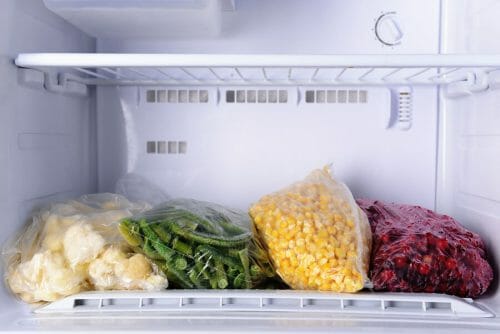Food preparation is quite a task in itself. Regardless of how efficient the cooking techniques may be, how advanced the kitchenware you may have is, or how easy the recipe might be, there is always an element of challenge present during food preparation. Moreover, when you have prepared your food, that’s just half the battle won. Storing your food can also be quite tricky on some occasions.
Food storage techniques have also gone through an evolution over the years. With the introduction of refrigerators, people could breathe a sigh of relief as they made it too easy to store any type of food. Moreover, deep freezers were also introduced, especially for bulk storage of food.
With every innovation that arrives on the market, it brings along with it a new set of problems that are important to be dealt with. Refrigeration and food storage also brings about some common issues where food tends to deteriorate, or it no longer remains edible. In this article, we will address some of the most common food storage problems, tips, and tricks, focusing on frozen storage that will help you store your food for a longer time without having to worry about rotting and loss of flavor.
Wrap your Food
Food wrapping is one of the most efficient food storage techniques most widely used around the globe. This technique is most suitable for travelers who cannot carry around a refrigerator with them. The basic aim while storing food is to preserve the moisture in the food without letting the air get to it. Missing either of these two objectives will harm your food.
So, what material should you use? Well, there are many food packagings available these days. Aluminum foil is best for storing food while traveling. If you wish to store your food in freezers, the best options are freezer storage bags, plastic wraps and plastic coated freezer paper.

Freezer Burns
In case you don’t wrap your food while storing it in your freezer, there is a high chance of freezer burn to your food. Freezer burn refers to the process where the surface of the food dries out while freezing. The dehydrated spot is left dry and tasteless and affects the quality of food considerably.
It occurs because insufficient wrapping allows the air to enter the food. Leaky plastic bags are also a cause of freezer burn. Physically, freezer burn leaves brownish gray spots on the food. The food becomes dry. However, it does not damage the food to an extent where it is not edible.
Freezing Cooked Poultry and Meat
Meat and poultry are the most troublesome ingredients when it comes to storage. Cooked meat has more moisture content than raw meat. Hence, it is important to preserve the moisture content. To store cooked poultry and meat in a freezer, the best technique is to wrap the meat tightly in a plastic wrap or aluminum foil. Make sure to debone the meat and keep it in larger pieces before wrapping.
Immediately after wrapping, store the food at zero degrees Fahrenheit or lower.
What Meats Should be Frozen?
Almost all types of meat can be frozen. People commonly ask whether tenderized meat can be frozen or not. It can be frozen, as tenderizing comes into effect while cooking the meat. However, canned meat is not recommended for storage inside freezers because:
- Most canned products contain liquids inside them. Seals of the can are prone to breakage while freezing.
- Canned items are secured with moisture preservation as well as air proofing. Hence, the food inside is already stored, so there is really no need for “storing a can.” You can put it on a shelf or maybe in a refrigerator if you like.
Freeze Time
One common question people ask relates to the duration of freezing. Well, there is no such limit as to how long you can freeze your food in a freezer or a deep freezer. As long as you have wrapped it well, your food is consumable even if stays in the freezer for a year or two. The flavor may be affected somewhat because of dehydration but wrapping your food well can help preserve the flavor for longer.
Nutrient Preservation
One of the primary objectives of food storage is to preserve the nutritional quality of the food. Food storage, therefore, addresses this requirement very well. While freezing, there is no loss of nutritional content from the food. However, the protein content in poultry and meat can reduce slightly due to freezing.
Conclusion
So, now you know exactly what measures to take when you store cooked and uncooked food in your refrigerators and freezers. The storage techniques are completely safe and hygienic, and you can consume your food anytime without having to worry about the loss of flavor or health concerns.
wow! thanks for clearing things up 😉